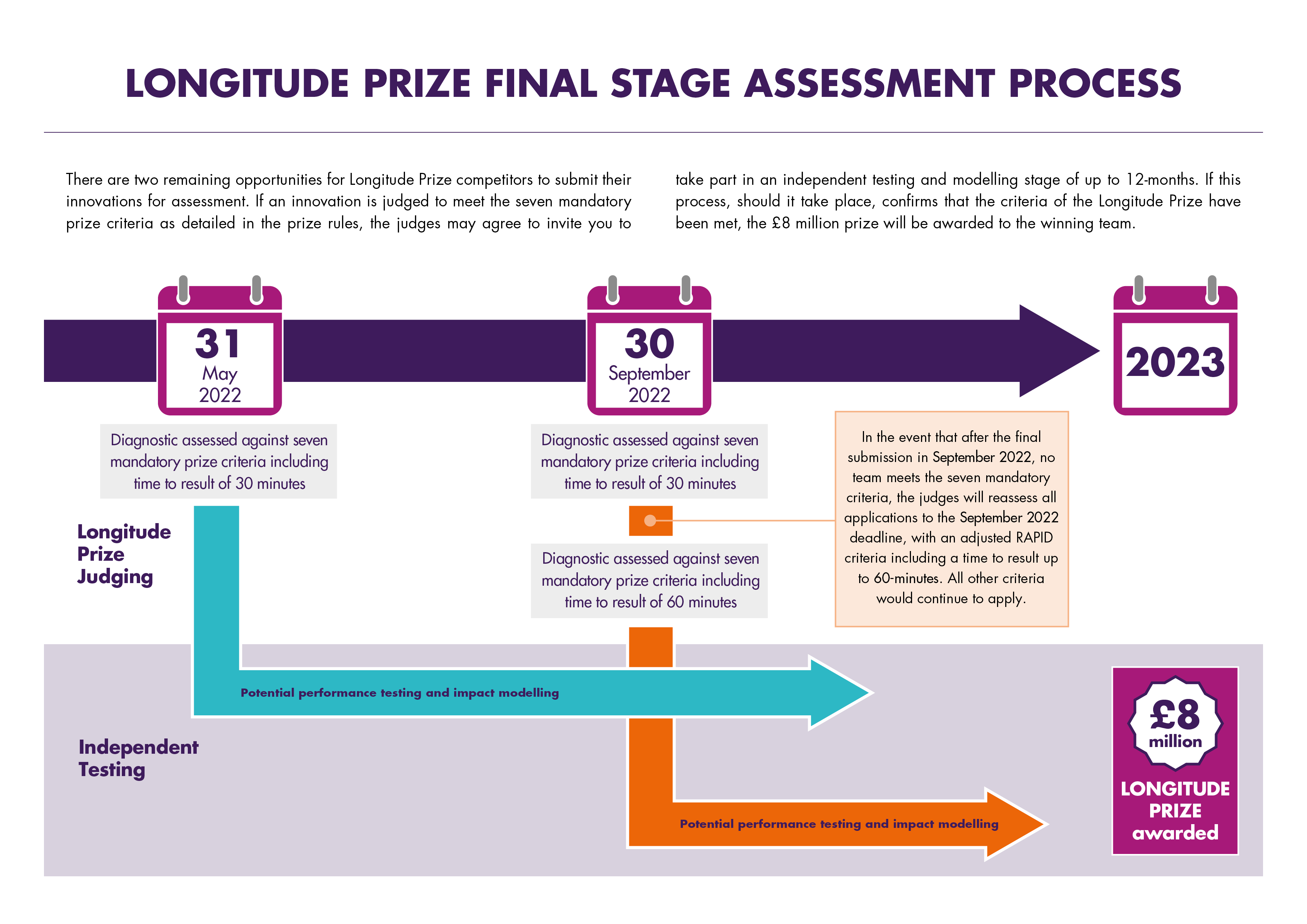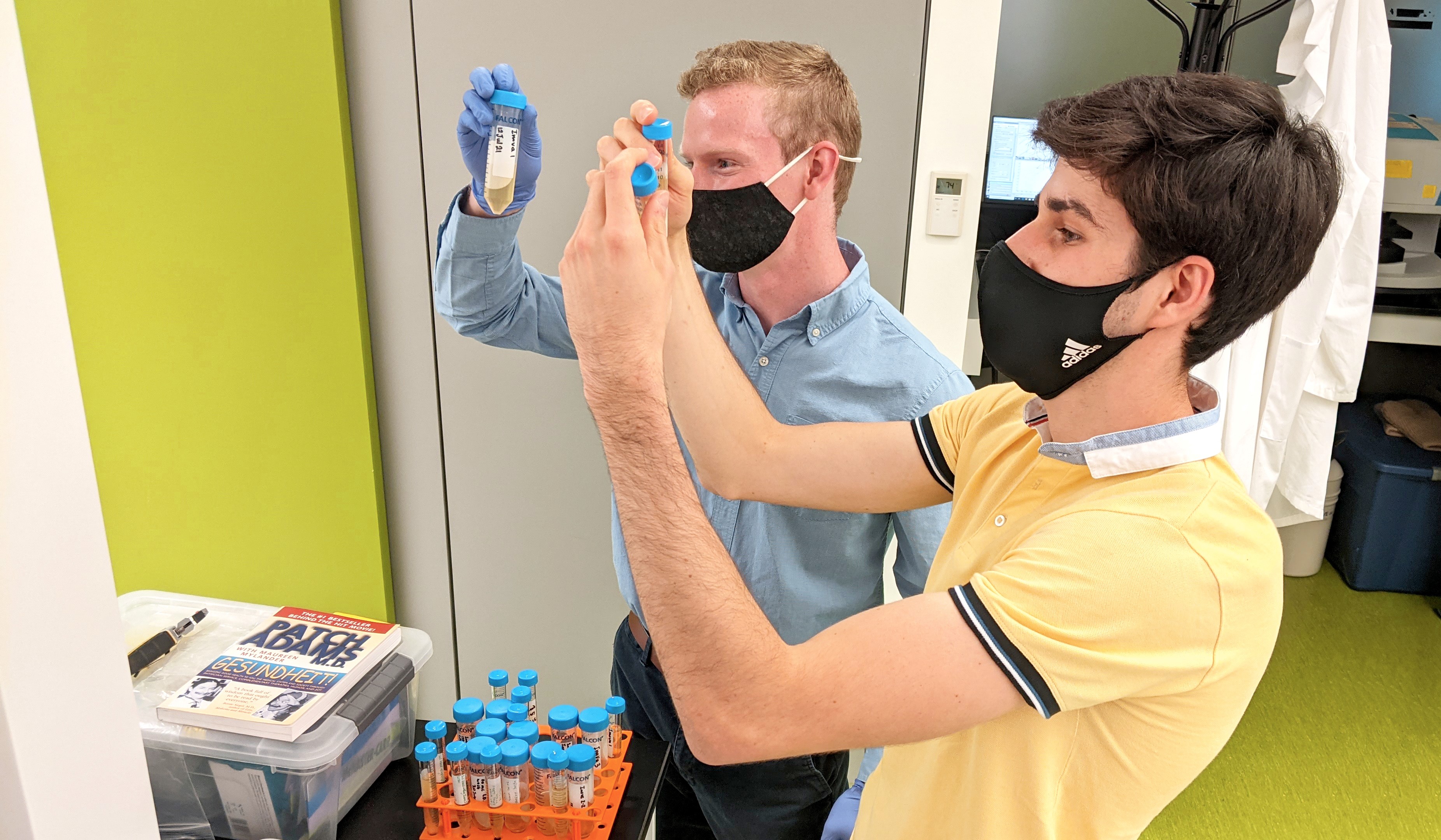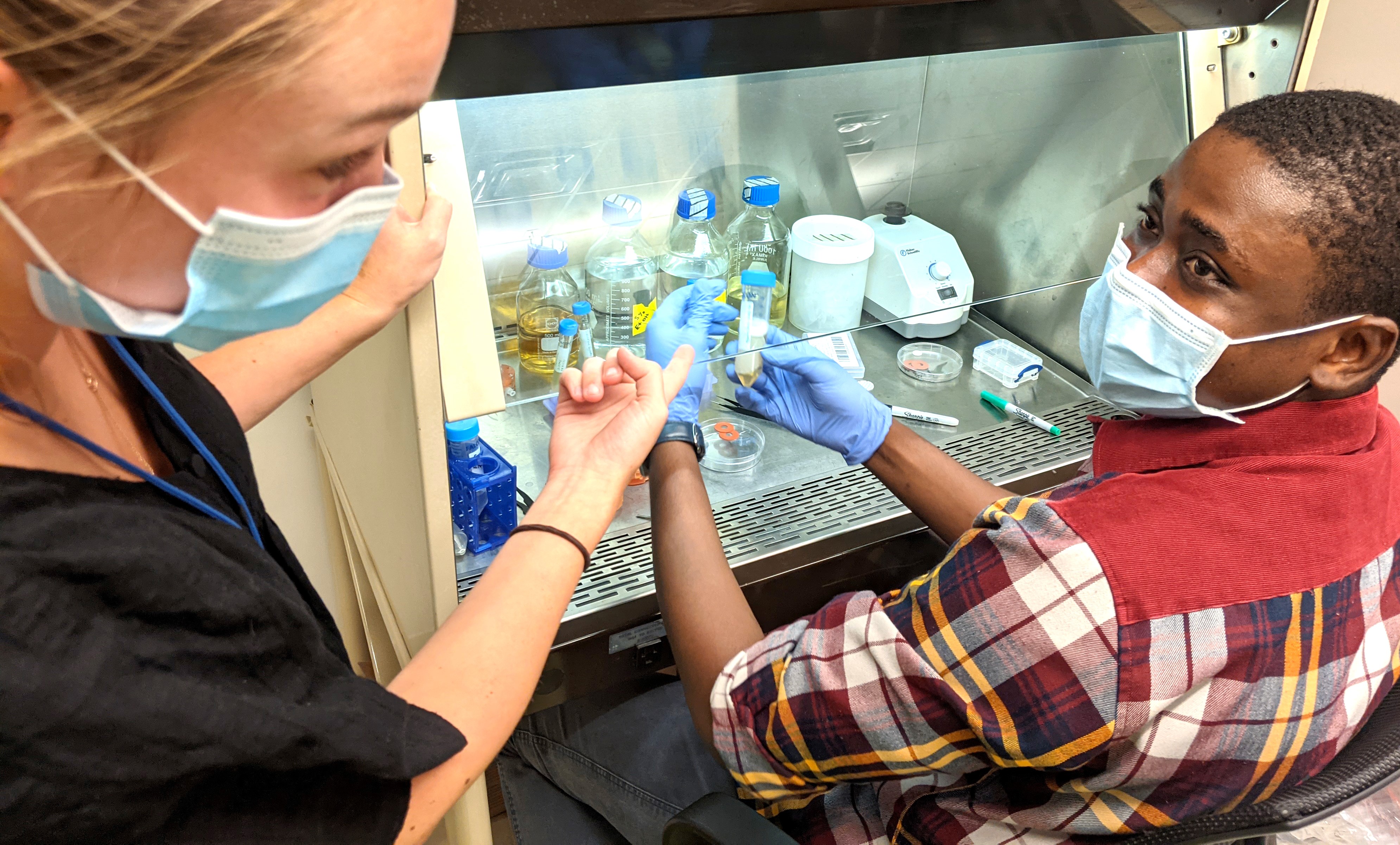60-minute diagnostic tests tackling antibiotic resistance to be eligible for £8m Longitude Prize
13 Apr 2022
13 April 2022, London – The Longitude Prize (longitudeprize.org) has announced the final phase in its mission to award £8 million (US$10.5 million/€9.5 million/₹792 million) to an affordable, accurate and rapid diagnostic test to support treatment decisions, decrease the inappropriate use of antibiotics and tackle the rising global pandemic of drug resistant infections. Today it announces that in the event that the existing criteria of a time to result of 30-minutes is not met by September 2022, tests with a time to result of 60-minutes or less will be eligible. This remains a dramatic reduction from the three days it currently takes from test to result.
Antimicrobial resistance poses a significant threat to humanity. In 2019, more than 1.2 million people worldwide – and potentially millions more – died as a direct result of antibiotic-resistant bacterial infections. In a recent report, health leaders have warned that antimicrobial resistance has become a leading cause of death globally, killing around 3,500 people every day. No new antibiotic has been discovered since 1962 for the treatment of Gram-negative bacterial infections. Testing plays a critical role in reducing antibiotic resistance by improving diagnosis of infections to prevent unwarranted use of antibiotics, and to rapidly detect and contain resistant infections.
The Longitude Prize will be awarded to a team of innovators for a point-of-care diagnostic test that meets the seven mandatory criteria of the prize. It must demonstrate that there is clinical need for the test, that it is accurate, affordable, safe, easy-to-use and scalable. Crucially, the test must be rapid.
There are currently 50 teams of innovators actively pursuing the Longitude Prize, based in Australia, Belgium, Canada, India, Israel, Malaysia, the Netherlands, Sweden, Turkey, the USA and the UK. Many are well-advanced and are close to being ready to bring their new tests to market. However, meeting all of the ambitious criteria has so far proved challenging. The prize remains open to new teams of diagnostic test innovators that believe their rapid diagnostic test meets the prize criteria.
Today, the Longitude Prize is announcing that should no team win the prize by September 2022 based on the existing criteria, solutions submitted in the final assessment round on 30th September 2022 will be reconsidered against a permissible time-to-result extended from a maximum of 30-minutes to 60-minutes. This broadens the opportunity for new teams of innovators – particularly those that have made huge strides in developing novel diagnostic technologies in response to Covid-19 – to apply and win the £8 million prize.

The decision to re-assess tests submitted to the judging panel on 30th September 2022 is based on expert advice that a diagnostic test delivering a result in up to 60-minutes would provide significant clinical utility and impact on clinical decision-making, helping clinicians to prescribe an effective antibiotic in the first instance. Test developers must demonstrate that the time-to-result of their test is in line with current clinical practice in the clinical pathway where the test will be used, the challenges of adoption, and how these will be overcome.
Diagnostic test innovators have three final opportunities to submit their solutions for review on 31st January, 31st May, and finally 30th September 2022.
Longitude Teams


It is estimated that 700,000 people a year die from an antibiotic resistant infection at present. The O’Neill Report commissioned by the UK government estimates that by 2050, this number will increase to 10 million people a year – a figure greater than the population of New York City (8.3m) or London (9m). No new antibiotic has been discovered since 1962 for the treatment of Gram-negative bacterial infections.
Current diagnostic testing for bacterial infections typically takes between two and three days in a central laboratory. This includes time taken to detect the presence of pathogens, and identify which antibiotic will be effective against them. The Longitude Prize calls on innovators to develop new rapid tests that achieve this type of advance in far less time and can be done at point-of-care.
In June 2021, the G7 released its 100 Days Mission to respond to future pandemic threats, highlighting the urgent need to tackle antibiotic resistance. It said that, “linking differential diagnostics with effective therapeutics will help tackle [antibiotic resistance]. Covid-19 has starkly shown the importance of the effective use of diagnostics in concert with public health control measures and clinical care in containing and managing an infectious disease outbreak”.
The Longitude Prize was launched in 2014. The British public chose for it to focus on antibiotic resistance following a nationwide vote in partnership with the BBC. The Longitude Prize is delivered by Nesta Challenges, the UK’s leading authority on the design and delivery of challenge prizes to incentivise innovation to overcome the greatest challenges of our time, and is funded by Innovate UK and Nesta.
To find out more about the prize, or to submit an innovation for consideration by the Longitude Prize judges, visit longitudeprize.org




